Apr 2, 2024 12:59 PM
Saxophonist, Sonic Explorer Casey Benjamin Dies at 45
Casey Benjamin, the alto saxophonist, vocalist, keyboardist and producer who stamped his distinctive sounds on the…
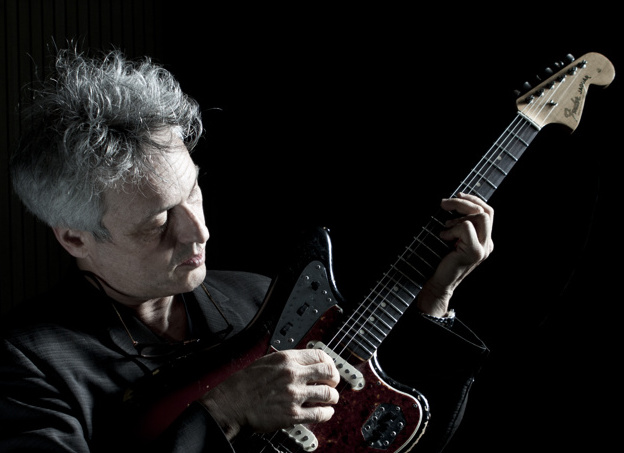
Marc Ribot is on the steering committee of the Music Workers Alliance, which is fighting to protect musicians’ rights.
(Photo: Barbara Rigon)Within 24 hours of the World Health Organization’s March 11 announcement that the COVID-19 outbreak was a pandemic, guitarist Marc Ribot saw his concert bookings start to disappear.
“The day after, everything was canceled through May,” Ribot recalled. “Then, more recently, everything was canceled through June and July. That’s where it stands now, but they’re going to cancel beyond that, too. We’re probably down for around 18 months. Live music was the first thing to get locked out, and we’ll be the last thing let back in.”
With music-streaming services paying a relative pittance to independent acts and niche artists like himself, Ribot depends on the money he gets from live performances—at clubs, theaters and festivals—to pay his bills.
The prognosis is dire. According to advocacy group Americans for the Arts, 95 percent of artists in the United States have lost money as a result of the pandemic, with the average decline estimated to be $27,000 per year. Several organizations have stepped in to help, and artists are banding together to call attention to the issues that affect their livelihood.
That’s where the Music Workers Alliance, a New York City organization fighting for the rights of musicians and DJs in the U.S., has stepped in. MWA is circulating a petition calling for “fairness in the digital marketplace.” Among the 15 members of the MWA steering committee are Ribot, drummer Alvester Garnett and Vision Festival co-founder Patricia Nicholson Parker.
Addressed to the CEOs of YouTube, Google and Facebook, the petition demands that those organizations commit 1 percent of their ad revenue to an emergency fund while live performances are shut down and to work harder to reduce copyright infringement. According to MWA, the petition has more than 4,300 signatures from a range of artists, including jazz stars Terri Lyne Carrington, Jack DeJohnette, Vijay Iyer, Esperanza Spalding and Wayne Shorter; singer-songwriter Norah Jones; Americana icon Rosanne Cash; multidisciplinary artist Laurie Anderson; and electronic producer/DJ The Black Madonna.
“Everybody I know is out of work indefinitely,” Ribot said. “And if we can’t tour and our records don’t make money, we are done. So, what before was a good cause if you have the time is now literally going to be a question of survival for some musicians.”
Targeting those digital giants should come as no surprise. Most music listening these days is done online, with half of on-demand consumption happening on YouTube, according to data in the 2018 Music Consumer Insight Report issued by the International Federation of the Phonographic Industry. Moreover, the organization’s data indicates that 38 percent of music consumption is done via copyright infringement: music posted or used without permission in videos, for example. At the same time, the ad revenue for big tech companies continues to soar, with music being a key reason for millions of listeners to go online.
According to some folks in the industry, however, MWA members are aiming their frustration and efforts in the wrong direction. Soon after the petition went public, the Electronic Frontier Foundation, a digital rights nonprofit, published a response pointing out that YouTube and Facebook already employ measures, albeit imprecise ones, to track copyright violations and, as they write, “adding more restrictions will make ... sharing our common culture harder at a time when, if anything, it needs to be easier.”
Others, like former digital director of the Mozilla Foundation and artists’ rights advocate Jesse von Doom, call into question the petition’s singling out “safe harbor” provisions of the Digital Millennium Copyright Act, which protect online companies from liability so long as they act quickly when they are notified that an artist’s work has been used illegally on their service.
“The safe harbors provision is the only thing that allows Bandcamp, Twitter or Instagram to exist,” von Doom said. “They flat-out legally couldn’t exist otherwise.”
While he applauds their efforts and hopes the petition makes a mark, von Doom suggests MWA scale down and concentrate on what can be done in the short term.
“The first step should be to ask their constituents, ‘What do you need?’” he said. “Not giant systemic changes. You need money for rent? You need to figure out how to get on your state unemployment rolls? You need to find extra income? Now, you’re talking about actionable things you can do right now.”
So far, the big tech companies at the center of this debate have yet to respond to the MWA petition. Facebook and Google (YouTube’s parent company) have not responded to requests for comment.
For his part, Ribot seems well aware that changing digital policy in the way MWA’s petition suggests is going to be an uphill battle. He is buoyed by recent victories, like MWA and other organizations successfully campaigning for Sen. Charles Schumer (D–N.Y.) to make sure independent contractors and gig workers were included among the beneficiaries of the CARES Act, which was signed into law by President Trump on March 27. Ribot said he hopes that more artists—major stars and lesser-known talent alike—will lend their names to their current petition and help amplify this issue.
“This is going to need action by musicians,” Ribot said. “Two months ago, these questions of economic justice were [responded to] like, ‘OK, that’s cool. I support that. I gotta run.’ Now, we have people standing on virtual unemployment lines while our work is generating wealth that we are not getting a piece of. More people than ever are accessing our work posted without consent or pay. Two months ago? That was an annoyance. Now? It’s intolerable.” DB
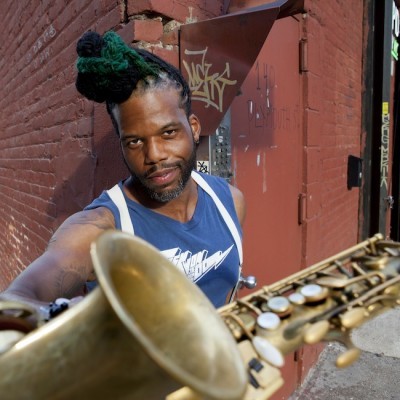
Benjamin possessed a fluid, round sound on the alto saxophone, and he was often most recognizable by the layers of electronic effects that he put onto the instrument.
Apr 2, 2024 12:59 PM
Casey Benjamin, the alto saxophonist, vocalist, keyboardist and producer who stamped his distinctive sounds on the…
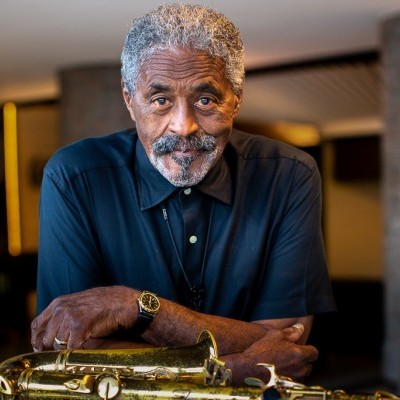
“He’s constructing intelligent musical sentences that connect seamlessly, which is the most important part of linear playing,” Charles McPherson said of alto saxophonist Sonny Red.
Feb 27, 2024 1:40 PM
“I might not have felt this way 30 to 40 years ago, but I’ve reached a point where I can hear value in what people…
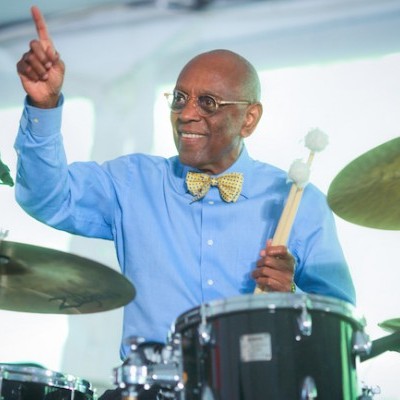
Albert “Tootie” Heath (1935–2024) followed in the tradition of drummer Kenny Clarke, his idol.
Apr 5, 2024 10:28 AM
Albert “Tootie” Heath, a drummer of impeccable taste and time who was the youngest of three jazz-legend brothers…
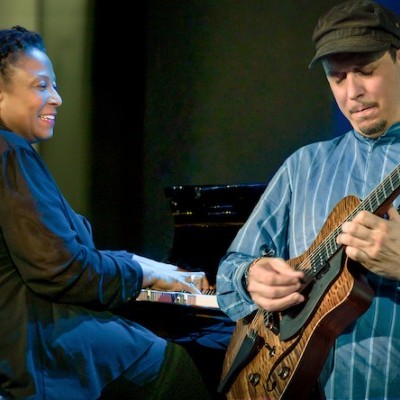
“Both of us are quite grounded in the craft, the tradition and the harmonic sense,” Rosenwinkel said of his experience playing with Allen. “Yet I felt we shared something mystical as well.”
Mar 12, 2024 11:42 AM
“There are a few musicians you hear where, as somebody once said, the molecules in the room change. Geri was one of…
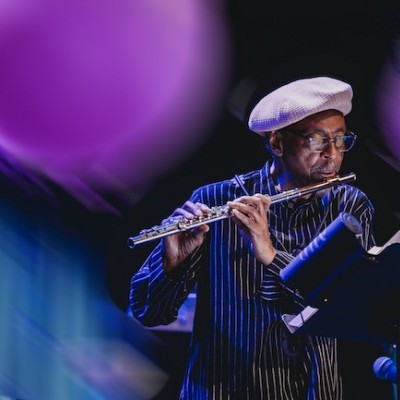
Henry Threadgill performs with Zooid at Big Ears in Knoxville, Tennessee.
Apr 9, 2024 11:30 AM
Big Ears, the annual four-day music celebration that first took place in 2009 in Knoxville, Tennessee, could well be…